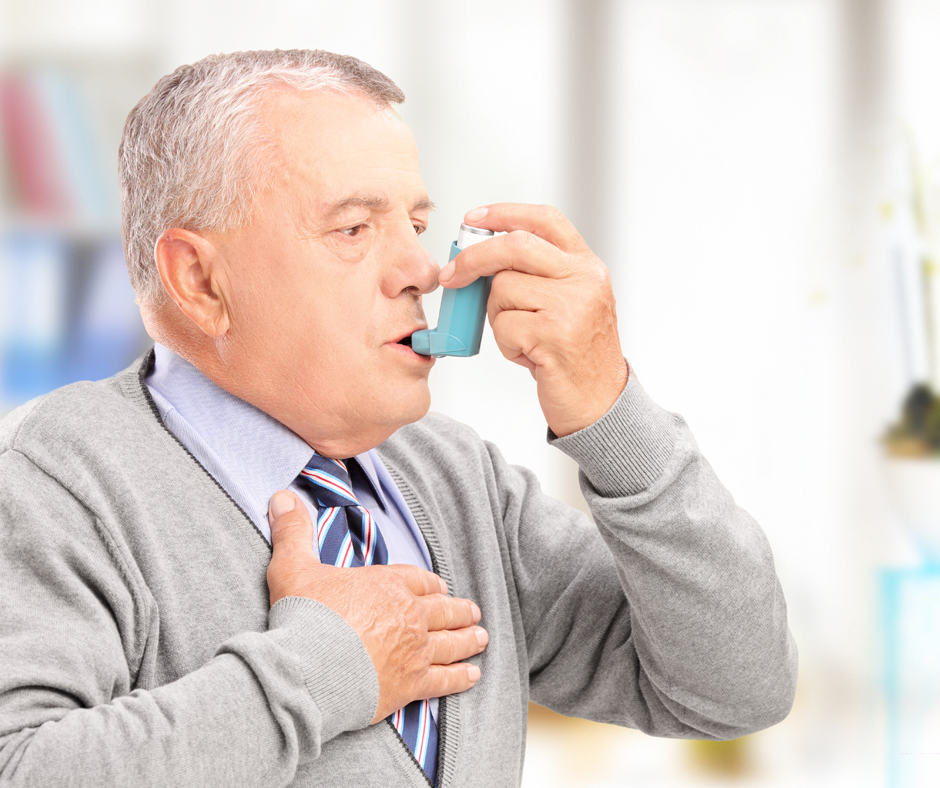For most people, breathing is something that requires little effort. After all, that’s why we say “that’s as easy as breathing!”
Unfortunately, that’s not the case for millions of Americans living with respiratory illness. Chronic lung conditions are all too common, and difficulty breathing is just one of the debilitating symptoms patients can experience. Respiratory medications can help alleviate severe symptoms, but many of these illnesses are incurable and deadly.
Many lung conditions develop later in life, but that’s not always the case. So you know what to watch out for, here are the top four respiratory illnesses in the United States.
Asthma
Asthma is a chronic lung condition that affects more than 25 million Americans, making it one of the most common respiratory illnesses in the United States. The condition causes inflammation in the body’s airways, which leads to respiratory symptoms like wheezing, coughing, chest tightness and difficulty breathing. Certain asthma triggers – like dust mites, allergies, exercise, and illness – exacerbate symptoms and can lead to life-threatening asthma attacks that need immediate treatment.
Asthma most commonly begins in childhood and is a lifelong disease – there is no known cure. The condition can be managed by avoiding asthma triggers and taking respiratory medications to prevent symptoms and lessen the frequency of attacks.
Chronic Obstructive Pulmonary Disease (COPD)
Chronic Obstructive Pulmonary Disease (COPD) refers to a group of chronic lung conditions that block airflow in the lungs and make it difficult to breathe. It affects an estimated 16 million Americans, though experts agree that number is likely much higher as many cases are undiagnosed.
The most common types of COPD include Chronic Bronchitis and Emphysema, and most COPD patients have both conditions. COPD is most commonly caused by smoking, but it can also result from long-term exposure to certain air pollution and hazardous chemicals.
There is no cure for COPD, and the condition is the third-leading cause of death in the United States. As COPD progresses, symptoms increase and can include chronic cough, increased mucus production, shortness of breath, increased respiratory infections, wheezing, and chronic fatigue. Treatment for COPD includes smoking cessation, respiratory medications to control and reduce symptoms, pulmonary rehabilitation and, in severe cases, surgery.
Chronic Bronchitis
Chronic Bronchitis is a lung condition that causes irritation and inflammation in the bronchial tubes, which are the passages that carry air in and out of your lungs. This irritation causes the body to produce excess mucus, which blocks the airways and makes it difficult to breathe. This obstruction is what makes Chronic Bronchitis one of the main types of chronic obstructive pulmonary disease (COPD).
The main symptom of Bronchitis is a persistent cough that expels thick, discolored mucus. Patients may also experience chest pain or tightness, wheezing, fatigue, and difficulty breathing. Unlike Acute Bronchitis, which is a temporary illness caused by a respiratory infection, Chronic Bronchitis is a serious condition that develops gradually over time. Symptoms can be alleviated through medications like bronchodilators and inhaled corticosteroids, but Chronic Bronchitis cannot be cured.
Emphysema
Emphysema is a form of COPD that causes damage to the tiny air sacs in the lungs (alveoli). Over time, the weakened air sacs lose their elasticity and eventually rupture, forming larger air pockets instead of many tiny ones. This reduces the surface area of your lungs, which makes it harder for the body to move oxygen in and carbon dioxide out.
Like all forms of COPD, Emphysema symptoms develop gradually and include persistent cough, increased mucus, wheezing, and shortness of breath – though you may have Emphysema for years without noticing any severe symptoms. The majority of Emphysema cases are caused by smoking, though some are attributed to long-term exposure to airborne irritants, and, in rare cases, an inherited protein deficiency called alpha-1-antitrypsin deficiency.
There is no cure for Emphysema, and the condition is ultimately fatal. Progression of the disease can be slowed with respiratory medications, respiratory therapy, and surgical intervention.

